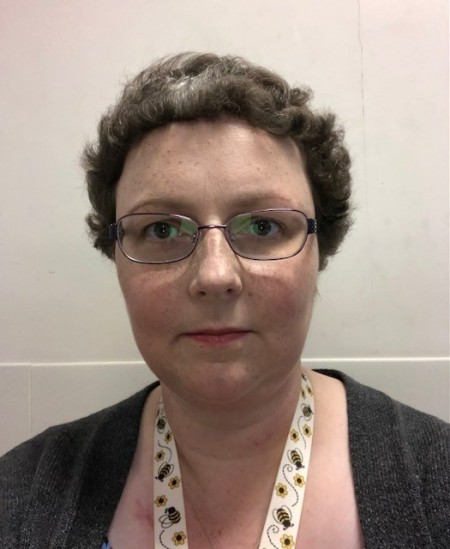As part of National Pathology Week 2023, Alex Webster, Specialist Biomedical Scientist working in Point of Care Testing (POCT) at Northern Care Alliance shares her thoughts on a career in Pathology. Northern Care Alliance is a member of the GM Pathology Network.
What is your area of expertise?
My area of expertise is quality, governance and auditing. I have a professional background in Biochemistry.
How did you develop skills in this area?
I have worked at a variety of different trusts throughout my pathology career which has allowed me to gain a wide range of experience with different processes and analytical equipment. During my time working at one Trust, I was seconded to POCT for around 18 months which allowed me to gain invaluable experience in quality and governance. I really enjoyed my time in POCT as it allowed me to see first hand how pathology enhances patient care.
Why did you choose a career in Pathology?
In many ways pathology chose me. I became the person I am because I forgot my lunch as a sixth form student.
Slightly annoyed at my forgetfulness I went down to the student canteen. I saw an advertisement for a Cadet Biomedical Scientist at Scarborough General Hospital on the Student noticeboard. It was for a full-time post with a day-release to Hull University to obtain an accredited BSc (Honours) in Applied Biomedical Science over 4 years.
I was unsure whether to apply or not, I am one of three children and traditionally I suppose my ‘class background’ would be working class. My parents would have struggled to support me with 2 other children to care for. I had almost written off the thought of being able to study to complete a full Batchelors degree, the best I could really hope for was a Foundation degree.
Having this opportunity to work towards a professional qualification has meant the world to me. I was the first in my family to become a University graduate. It has allowed me to have a professional career using my strengths in science and build on other skills such as team working. I also have the satisfaction of knowing that I have made an indirect difference to patient care even if it is ‘unseen’.
Next August I will have completed 20 years’ service in the NHS.
What does a typical day involve?
To be honest POCT is quite a diverse and fast paced pathology discipline to work in and I would say that there is no typical day.
Usually, my first task of the day is to check in with the POCT team and respond to any emails and voicemails from other service users and disciplines. I would then review any outstanding EQA reports or follow up on any poor EQA returns. Any findings regarding poor EQA returns are fed back to ward managers, link nurses and to our Monthly Quality meeting. We work closely with clinical areas offering additional training and support to help improve compliance and quality.
Once a month we also audit a POCT device or analyser. As part of the process, I will attend different sites with a member of the POCT team to audit areas such as connectively, training competencies and cleanliness.
As an ever-growing discipline POCT are continually verifying new devices and processes. All clinical areas must request new POCT devices/analysers through the POCT committee. We standardise all equipment used across the NCA. Our verification process allows us to check the accuracy, precision, and robustness of any device before it is used for patient testing.
As an ongoing process I update all SOPs, risk assessments and competencies for every POCT device/analyser. This is essential to ensure that all results produced by POCT are accurate and in line with Trust governance. Ensuring that all documentation used for training is correct and following due process is extremely important for patient safety.
What’s been your biggest inspiration?
As a child I always had an interest in how things grew and developed. I was your typical ‘why’ child so much so that my dad bought me an encyclopaedia and taught me how to use it for reference at 8 years old.
I was good at science at school with a particular interest and strength in Biology. My teachers at school encouraged me to look at becoming a healthcare professional and aspire to strive further and to do more.
I think my biggest inspiration has been working as a healthcare professional in the COVID-19 pandemic. The NHS really does have a ‘can do and will do’ attitude that spans from a consultant to a ward domestic. I cannot think of anywhere else that has this culture at its heart.
How have you grown in your profession?
I have grown in a lot of confidence especially after participating in round the clock rotas as a lone worker.
I have developed a particular strength in reviewing quality control and external quality assurance.
I also have a ‘knack’ for troubleshooting and on many occasions have been able to pinpoint and resolve an issue with equipment.
What has been your biggest achievement so far?
I feel that my biggest achievement has been to help to meet the demands faced by the Trust during the COVID-19 pandemic.
What advice would you give to someone looking for a career in Pathology?
My first piece of advice would be to complete a degree that has been accredited by the Institute of Biomedical Science and look for a degree course that will allow you to complete the state registration portfolio before you graduate.
My second piece of advice would be to always look out for your colleagues as they will look out for you in turn.
